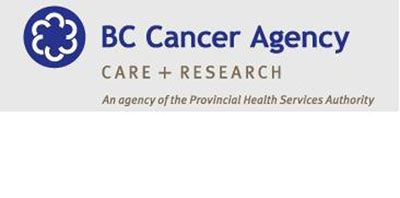From finding ways to improve access to cancer screening to ensuring support networks are in place after discharge, a series of new partnerships are trying to enhance cancer care for aboriginals around the province.
The B.C. Cancer Agency is working with a variety of groups, including the First Nations Health Authority and Metis Nation B.C. to find news ways to reach out to aboriginals and find out what barriers exist when it comes to cancer care.
"All of the projects are looking at diagnosis and discharge because those are the two key pieces," B.C. Cancer Agency Centre for the North regional operations director Pam Tobin said. "Sometimes it's difficult to get people into diagnosis and screening, then on the discharge end what's happening on the transition back into community."
The cancer agency and its partners have secured three years worth of funding for four different programs from the Canadian Partnership Against Cancer. The funding has been distributed to the different aboriginal agencies to conduct the research and implement the programs, with the B.C. Cancer Agency working in a supporting role.
Tobin said the funding will allow the different groups to collaborate on ideas and share resources to further strengthen the ties that exist between the organizations. It will also give them the chance to engage with specific communities to find out what specific needs exist and how they can be met.
"We don't want to come in with an agenda already in place, we want to hear from communities, hear what their challenges are and then work with communities to see how we can close that gap," she said.
The first partnership, which includes the First Nations Health Authority, the Provincial Health Authority's aboriginal health program, the B.C. Association of Aboriginal Friendship Centres and Metis Nation B.C., looks at ways to ensure the continuity of care for First Nations, Metis and Inuit people in B.C. Tobin said one area of emphasis will be what happens when someone concludes their treatment.
"When a patient is discharged after completing their treatment and they transition back to the community, what resources are available?" she said. "What are some of the resources people need, whether it's financial, emotional, any of those types of resources, so it's helping patients and families with that continuum of care."
The second program, which will be launched across most of Western Canada, will create videos where aboriginal people tell their stories about their personal cancer experiences with the hope of giving other people insight into what to expect.
"Oftentimes when you're first diagnosed and you're given pamphlets and brochures and given booklets and guides, that's not always culturally appropriate, so to have a verbal overview of what your journey is going to look like and what other people have gone through is more appropriate is some ways," Tobin said.
In addition to cancer agencies in Alberta and Manitoba and the government of the Northwest Territories, the video program also includes First Nations groups from different jurisdictions.
The third partnership looks at any gaps in care from a Metis perspective with the Metis Nation B.C. Tobin said since many Metis people live in urban settings, the barriers to care they face may be different from First Nations groups.
The final program is being developed with groups from the Yukon and will look at the challenges aboriginal people in that territory face. The B.C. Cancer Agency provides most of the cancer treatment to Yukon patients through its Vancouver centre.
Although the initial funding runs through to 2017, Tobin hopes the results of the partnerships can last long term.
"We will be aiming to making sure what we have in place is sustainable beyond that," she said. "Just because the funding is up in 2017 doesn't mean our work will be finished. Really it will just be beginning."



